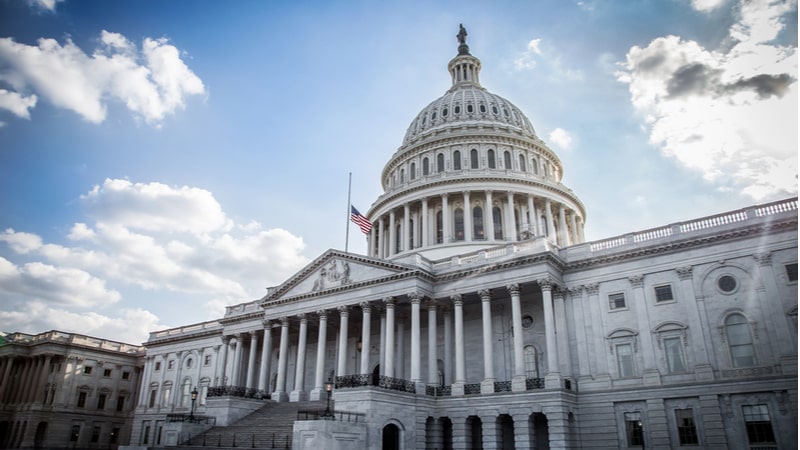
Defense Secretary Lloyd Austin and Commerce Secretary Gina Raimondo pleaded with congressional leadership today for quick action to approve COMPETES Act legislation – also known as the Bipartisan Innovation Act – that has been hung up for several weeks in a House-Senate conference committee.
In a July 13 letter, Austin and Raimondo emphasized the importance of the legislation’s $52 billion in funding to boost domestic semiconductor manufacturing on U.S. national security. And they warned that any further delay in acting on the legislation may put the U.S. at an innovation deficit from which the country may never recover.
House and Senate conferees began their work in mid-May to negotiate a unified version of similar innovation-themed legislation approved earlier by both chambers. Those bills include similar provisions on semiconductor industry funding, and providing new funding for the National Science Foundation (NSF) to undertake billions of new technology research. The conferees’ progress has been difficult to gauge since then, other than through grumbling on social media.
In their letter to House Speaker Nancy Pelosi, D-Calif., Senate Majority Leader Chuck Schumer, D-N.Y., House Minority Leader Kevin McCarthy, R-Calif., and Senate Minority Leader Mitch McConnell, R-Ky., the Defense and Commerce chiefs laid out the case for more urgent congressional action. Their bottom line: further delay will put the U.S further behind on the innovation curved versus adversaries including China, and even allies in Europe.
“Our economic and national security depends on our ability to invest in the technologies of today and tomorrow,” Austin and Raimondo said. “U.S. leadership in technology and innovation has long underpinned U.S. economic prosperity and military strength, but must not be taken for granted. For the first time we face a strategic competitor in China that is both determined to become the global leader in the industries of the future and has the means and resources to do so if we are not on our game.”
They called the ability to boost the U.S. semiconductor sector “ground-zero in this technological competition.”
Semiconductors, they said, “are driving innovation and competitiveness in nearly every emerging technology – from artificial intelligence to next-generation wireless technology, to biotechnology – and also have a wide range of critical national security applications.”
“The Bipartisan Innovation Act is critical to ensuring America’s global leadership in the 21st Century, and it is essential that we move quickly to deliver this bipartisan legislation for the American people,” the agency secretaries urged.
“If these funds are not appropriated in the coming weeks, the United States will miss out on the current wave of semiconductor investment,” they warned.
“Chip producers must make capital expenditure decisions now to meet the enormous increased demand. If we do not act, they will expand in countries that are already aggressively offering incentives, rather than here in the United States,” they said. The secretaries cited aggressive semiconductor funding and incentive efforts by governments in China, Europe, India, and South Korea, but also said that semiconductor makers are “eager” to make bigger investments in the U.S. with the help of funding from the pending legislation.
“Semiconductor companies need to get ‘concrete in the ground’ by this fall to meet this increased demand in the years ahead,” the secretaries said.
“We agree that the manufacturing of semiconductors is an imperative for our national security,” they said. Through the pending innovation legislation, “we face a once-in-a-generation opportunity to lay a long-term foundation for a robust and competitive innovation economy. It is our assessment that further delay in advancing a final agreement on the Bipartisan Innovation Act will result in a deficit of semiconductor investment from which we may not be able to recover,” Austin and Raimondo warned.
